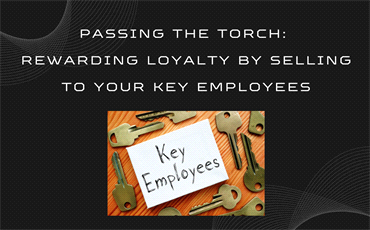A Bad Lease Can Kill The Sale Of A Business
Does a lease impact the value of a business?
The answer is a resounding Yes.
Does a lease impact the value of a business?
The answer is a resounding Yes.
When you put your business on the market, potential buyers will perform due diligence on your business. One of the items requested is information on the current commercial lease your business has in place.
Leases can significantly impact the value of a business.
A good lease can enhance your business's overall value, and a bad lease can hurt the business value, frustrating the sales process and possibly killing the transaction. So, what can business owners do to avoid getting caught in the leasing trap?
Here are some important factors to consider in your lease to ensure it doesn't hurt your business value or impact the sales process.
The Length of Your Lease
The timeframe remaining on a lease can significantly impact your business's value. If the remaining term on a commercial lease is short (i.e., under five years), a risk may exist to the future operation of the business beyond the lease term.
Risks such as these often affect the value of a business.
To that end, the longer the timeframe remaining on a lease and renewal options, the better. It should come as no surprise that a longer lease increases your business's stability and value.
Exit, Exclusivity and Use Clauses
When negotiating a lease, it's prudent to include an option for getting out of the lease.
One such option is the exit clause. This clause allows you to exit your lease should a need arise without much red tape.
It's also prudent to understand exclusivity clauses.
An exclusivity agreement, also known as a lock-out agreement, is a provision within a commercial lease that prevents landlords from leasing to another tenant with the same business as you. It's a promise by the landlord that only you can engage in a particular business within the building or shopping center.
When signing the lease agreement, try to have assurance that you're the only one who can engage in your kind of business in writing. The last thing you want to see is a similar business opening nearby, stealing away your customers. This can put off potential buyers, should you ever want to sell the business.
The “use” clause may restrict the expansion of a business into new products or services. A use clause can be either a restriction on how you do business—telling you what you can't do—or a prescription, telling you what you must do. A common example is the salon which is restricted from adding nail care services or a restaurant from changing format. It is common for a “use” clause to stop buyers from purchasing a business.
Restoration Clause
One of the signs of a bad lease is a restoration clause.
A restoration clause legally obligates the lessee to restore the premises to the condition it was before the possession of the space by the tenant. This clause is often overlooked by business owners when signing the lease agreement but can prove very costly down the line should the landlord decide to exercise this right.
In cases involving hazardous materials, the estimated cost of remediation can exceed the value of the business. Potential buyers will, in most cases, steer away from companies with such leases as they are a business liability.
Transferring Your Lease
At some point in the future, you may want to sell your business.
It's important to examine the lease to ensure no clauses restrict your right to transfer the lease to a new owner.
One way is to discuss with the landlord before signing the lease agreement about the option to transfer the lease. While the landlord cannot prevent you from selling the business, they could add clauses that could end up discouraging the next tenant.
The Recapture Clause
Every lease contains an assignment clause, which determines when and how a lessee may assign a leasehold.
In most cases, a landlord will want assignments to be subject to their approval, so they often invoke a recapture clause if an assignment is requested.
A recapture clause is a provision that grants a landlord the right to terminate an entire lease or a portion of it. Trying to sell your business may trigger a landlord's right to recapture the property. Bad news for both the seller and the buyer!
For instance, if you (the seller) were paying rent of only $15 per square foot but the market rate has increased to $20. The potential buyer would expect to continue paying rent at the same rate specified on the lease.
However, the landlord may exercise their recapture rights and terminate the contract in order to charge the new tenant at the prevailing market rate. This may discourage the new buyer and probably terminate the sales process.
The solution? Remove the recapture.
When negotiating the lease, make sure there's no landlord right to recapture. Or, at the very least, limit their right to recapture.
Wrapping Up
Potential buyers will look at all aspects of your business, positive and negative, to determine whether it's a worthy investment. One area they will look into is the current commercial lease.
It's crucial to ensure you understand every section and clause in the lease, as some overlooked clauses can prove expensive down the line and even put buyers off. It is always wise to engage legal counsel and/or a Commercial Real Estate professional when negotiating contracts.
Request Valuation
We will get back to you as soon as possible.
Please try again later.
Recent articles for you
Larry Goldstein of First Choice Business Brokers
License: NV RE S.0188852
Permit: Business Broker Permit BUSB.0007059
Navigation Links
Want to receive new business listing alerts by email?
The World's Authority in Business Sales
© 2023 Larry Goldstein of First Choice Business Brokers | Each office is independently owned and operated. Privacy Policy






